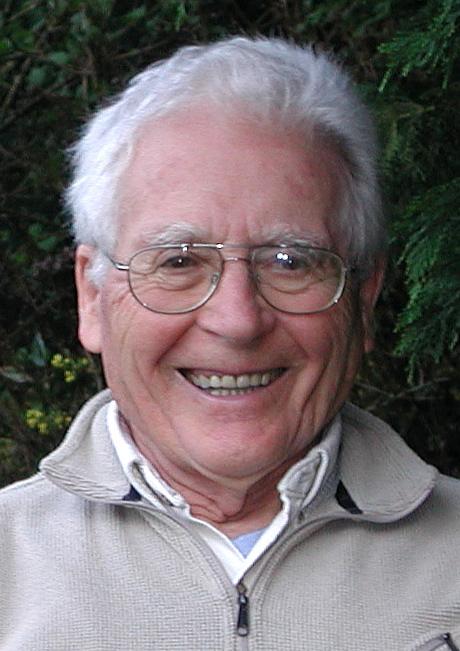In the realm of scientific inquiry, there are moments that shine like beacons in the vast expanse of knowledge. Enter the enigmatic realm of James Lovelock, a visionary whose discoveries have shaped our understanding of Earth’s intricate web of life. From the Gaia hypothesis to his pioneering work in environmental science, Lovelock’s contributions have transcended conventional boundaries, challenging us to rethink our relationship with the planet we call home. Join us on a journey of exploration as we unravel the captivating tapestry of James Lovelock’s discoveries and delve into the profound impact they continue to have on our world today.
Table of Contents
- – Unveiling the Groundbreaking Discovery by James Lovelock
- – Exploring the Impact of James Lovelock’s Revolutionary Findings
- – Understanding the Implications of James Lovelock’s Research
- – Applying James Lovelock’s Discoveries to Foster Sustainable Practices
- Q&A
- Future Outlook
– Unveiling the Groundbreaking Discovery by James Lovelock
“`html
In a momentous revelation that has sent shockwaves through the scientific community, James Lovelock has unveiled a groundbreaking discovery that challenges our understanding of the world around us. Through tireless research and unwavering dedication, Lovelock has unearthed a hidden truth that promises to reshape the way we perceive our environment.
This discovery not only sheds light on the intricacies of our planet but also holds the potential to revolutionize our approach to sustainability and conservation. By delving deep into the essence of nature, Lovelock has opened a doorway to a realm of possibilities previously thought unattainable. The implications of this finding are vast, offering a glimpse into a future where mankind and the Earth can coexist harmoniously.
“`
– Exploring the Impact of James Lovelock’s Revolutionary Findings
James Lovelock, a maverick scientist, shook the foundations of traditional environmental thinking with his groundbreaking Gaia hypothesis. This theory posits that the Earth is a self-regulating organism, maintaining conditions suitable for life. Lovelock’s concept sparked controversy, challenging prevailing scientific notions and inspiring a new way of viewing our planet’s interconnected systems.
Lovelock’s research led to the development of novel ideas about the Earth’s biosphere and its intricate balance. His work highlights the importance of understanding the Earth as a complex, living entity capable of adapting to changes over time. By delving into Lovelock’s findings, we gain insight into the dynamic interactions between living organisms and the environment, shedding light on the delicate harmony essential for sustaining life on our planet. Through his pioneering discoveries, Lovelock has revolutionized our perspective on Earth’s ecosystems, emphasizing the interdependence of all living beings.
– Understanding the Implications of James Lovelock’s Research
James Lovelock’s groundbreaking research has sparked a wave of curiosity and discussion in scientific circles worldwide. His Gaia hypothesis proposes that the Earth is a self-regulating system, akin to a living organism. This concept challenges conventional scientific thinking and opens up new avenues of exploration into the interconnectedness of all life forms on our planet.
Key Implications of James Lovelock’s Research:
- Interconnectedness: Lovelock’s work highlights the intricate web of relationships between living organisms and their environment, emphasizing the Earth’s ability to adapt and evolve as a single entity.
- Climate Change: The Gaia hypothesis forces us to reevaluate our understanding of climate change by viewing it not only as a threat but as a symptom of a larger, intricate system at play.

– Applying James Lovelock’s Discoveries to Foster Sustainable Practices
James Lovelock’s discoveries offer a unique perspective on how we can foster sustainable practices and create a healthier planet for future generations. By delving into his groundbreaking research, we uncover innovative ways to address environmental challenges and promote a more harmonious relationship with Earth.
One key aspect derived from Lovelock’s findings is the concept of Gaia theory, which suggests that Earth functions as a self-regulating system. This idea prompts us to rethink our interactions with the environment and consider how we can work in tandem with nature to achieve sustainability. Embracing this principle can pave the way for developing eco-friendly technologies, implementing conservation measures, and adopting practices that minimize our ecological footprint.
Q&A
**Q&A: Exploring the Fascinating James Lovelock Discovery**
Q1: Who is James Lovelock and why is his discovery significant?
James Lovelock is a renowned scientist known for his groundbreaking concept of the Gaia hypothesis. This theory suggests that the Earth is a self-regulating organism where living organisms interact with their surroundings to maintain environmental conditions suitable for life. His discovery challenges traditional views of the Earth as a passive system and highlights the interconnectedness of all living beings.
Q2: How did James Lovelock’s discovery of the Gaia hypothesis come about?
Lovelock’s journey to discovering the Gaia hypothesis began in the 1960s while working for NASA on a project to detect life on Mars. Through his research, he realized the Earth’s atmosphere was far from chemical equilibrium, leading him to propose the idea that the Earth itself behaves like a living organism. This revolutionary concept sparked new discussions on humanity’s relationship with the planet.
Q3: What impact has James Lovelock’s discovery had on environmental science?
Lovelock’s Gaia hypothesis has significantly influenced the field of environmental science by highlighting the delicate balance between living organisms and their environment. It has prompted researchers to explore more holistic approaches to studying ecosystems and has raised awareness about the fragility of the Earth’s ecosystems. Lovelock’s work serves as a reminder of the interconnectedness of all life on our planet.
Q4: How can the general public benefit from understanding James Lovelock’s discovery?
By embracing Lovelock’s Gaia hypothesis, the general public can gain a deeper appreciation for the Earth’s intricate systems and the impact of human activities on the environment. Understanding the interconnectedness of all life forms can inspire individuals to adopt more sustainable practices and work towards preserving the planet for future generations. Lovelock’s discovery serves as a call to action for everyone to become stewards of the Earth and protect its delicate balance.
Future Outlook
As we conclude our exploration of James Lovelock’s groundbreaking discovery, we invite you to ponder the profound implications of his work on our understanding of the Earth as a living, interconnected system. The journey through Lovelock’s scientific revelation serves as a reminder of the awe-inspiring complexity and resilience of our planet. Let us continue to marvel at the wonders of nature and strive to preserve and protect this precious home we all share. Thank you for joining us on this enlightening odyssey through the realm of science and discovery.




0 Comments